Last updated: June 9, 2025

What Factors Influence a Horse’s Lifespan?
So, what exactly influences a horse’s lifespan? Let’s explore four key factors: genetics, breed variations, quality of care, and living conditions.
Genetics: Genetics plays a significant role in determining how long a horse will live. Just like in humans, some horses are simply born with a genetic predisposition for longevity. This doesn’t mean horses with these genes are guaranteed to live longer, but they certainly have a head start.
Breed: The breed of a horse can greatly affect its lifespan. For instance, some breeds like the Arabian, Appaloosa, and Haflingers are known to live longer than others. This difference in lifespan can be attributed to the unique traits and characteristics of these breeds.
Quality of Care: The third factor, quality of care, cannot be overstated. A well-nourished, regularly exercised horse with access to prompt veterinary care generally has a better chance of living a long, healthy life. Routine vet check-ups can help catch any potential health issues early, while a balanced diet and regular exercise can promote overall well-being.
Living Conditions: A horse’s living conditions can significantly impact its lifespan. A suitable climate, a secure and comfortable shelter, and the company of other horses can positively influence a horse’s life. Horses are social animals, and having companions can improve their mental health, which in turn can contribute to a longer life.
In sum, while some factors are out of our control, like genetics and breed, others, such as quality of care and living conditions, can be actively managed to give your horse the best shot at a long, happy life.
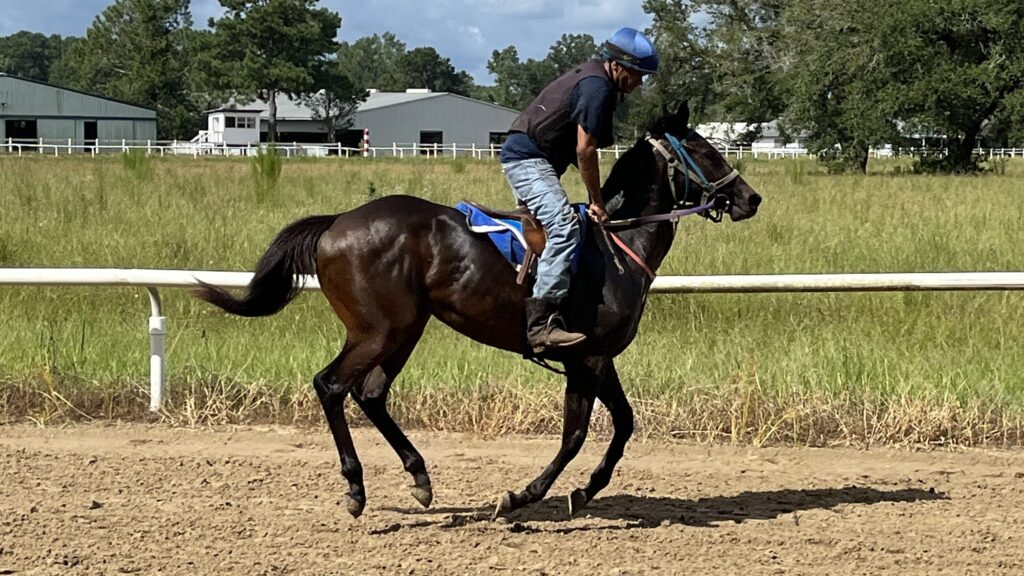
Lifespan of Various Horse Breeds
Here is a chart that includes the average lifespan for many common horse breeds.
| Breed | Lifespan |
|---|---|
| Arabian | 25 to 35 years |
| Appaloosa | 25 to 35 years |
| Haflinger | 25 to 30 years |
| American Paint Horses | 25 to 30 years |
| Mustang | 20 to 25 years |
| Friesian | 14 to 16 years |
| Clydesdale | 25 to 30 years |
| Shire | 25 to 30 years |
| Halovarian | 25 to 30 years |
| Gypsy Vanner | 25 to 30 years |
| Tennessee Walker | 28 to 33 years |
| Standardbred | 25 to 35 years |
| Thoroughbred | 25 to 28 years |
| Quarter horse | 25 to 35 years |
| Akhal Teke | 18 to 20 years |
| Irish Sport Horse | 25 to 30 years |
| Norwegian Fjord | 28 to 30 years |
| Belgian | 25 to 30 years |
| Percheron | 25 to 30 years |
| Icelandic Horse | 25 to 30 years |
| Paso Fino | 25 to 35 years |
| Dutch Warmblood | 25 to 30 years |
| American Saddlebred | 30 to 35 years |
| Shetland Pony | 20 to 25 years |
| Miniature Horse | 25 to 35 years |
| Andalusian | 20 to 25 years |
Just as with humans, the lifespan of horses can vary greatly, and this variation can be particularly significant among different breeds. Starting with Thoroughbreds, these horses are typically known for their speed and racing prowess.
On average, Thoroughbreds live between 25 to 30 years. However, their high-energy lifestyle and the physical demands of racing can sometimes impact their lifespan. Next up, Quarter Horses. These versatile and hardy horses generally have a life expectancy of around 25 to 35 years, and with excellent care, some have been known to live well into their 40s.
Arabian Horses, known for their endurance and vibrant spirit, often have an impressive lifespan. These horses can live anywhere from 30 to 40 years, with some reaching into their 50s, given the right conditions and care.
As for other common breeds, the lifespan can vary considerably. For instance, smaller breeds like the Shetland Pony can often live into their 30s or even 40s, while larger breeds like the Clydesdale tend to have shorter lifespans, typically in the late teens to early 20s.
Keep in mind that while breed can influence a horse’s lifespan, individual factors such as diet, exercise, healthcare, and living conditions play a significant role, too. In essence, a horse’s lifespan is a complex interplay of its genetics and the care it receives.
Which Horse Breed Lives the Longest?
When it comes to longevity, one breed that often stands out is the Arabian horse. Renowned for their endurance and resilience, Arabians are known to commonly live into their 30s and sometimes even their 40s. There have been documented cases of Arabian horses living into their 50s.
However, it’s important to note that while breed can influence a horse’s lifespan, it’s not the only determining factor. Individual factors like genetics, diet, exercise, healthcare, and overall living conditions also play a significant role in a horse’s lifespan.
Thus, while certain breeds like the Arabian may typically have longer lifespans, this doesn’t guarantee that every individual horse of that breed will live to old age. Responsible and attentive care is crucial for any horse, regardless of its breed, to live a long, healthy life.
So, which horse breed lives the longest? The answer may surprise you – it’s not just one specific breed, but rather a variety of different breeds depending on where they are from and how they are cared for.
Which horse breed has the shortest lifespan?
Friesian horses typically only live sixteen years. These horses are gracious, athletic, and beautiful, but they also don’t have long lives. One of the reasons for their shortened lives is the amount of inbreeding.
The generations of inbreeding caused many genetic congenital disabilities, some of which are life-threatening. Friesian horses typically only live 16 years. If you’re interested in learning more about this fascinating breed, check out this article: The Friesian Horse Breed: Lifespan, Genetics, and History.
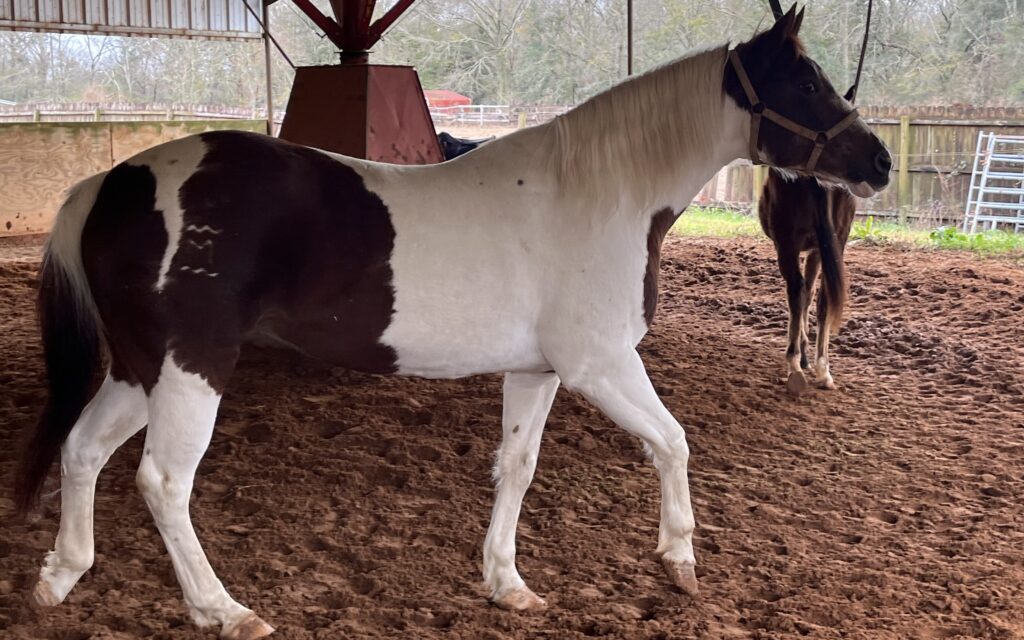
Horses with good health and conformation at a young age are more likely to live longer, healthier lives regardless of breed. Raising a healthy horse to promote longevity can be overwhelming, but we always need to keep our horses’ best interests in mind.
We can’t do anything about their genetics, but we can feed them correctly and ensure they get exercise so they have an opportunity to live to a ripe old age.
How to Prolong Your Horse’s Life: Tips for Horse Care
Taking care of a horse is a comprehensive task that encompasses both physical and mental health. By paying close attention to diet, exercise, health care, and companionship, you can enhance your horse’s quality of life and potentially extend its lifespan. Here are some tips to help you take excellent care of your equine friend.
Proper diet for horses
A balanced, nutrient-rich diet is the cornerstone of your horse’s health. This includes a good mix of quality hay or pasture, grains, fruits, and vegetables, along with plenty of clean, fresh water. Remember, each horse is unique, and dietary needs can vary based on age, breed, and activity level.
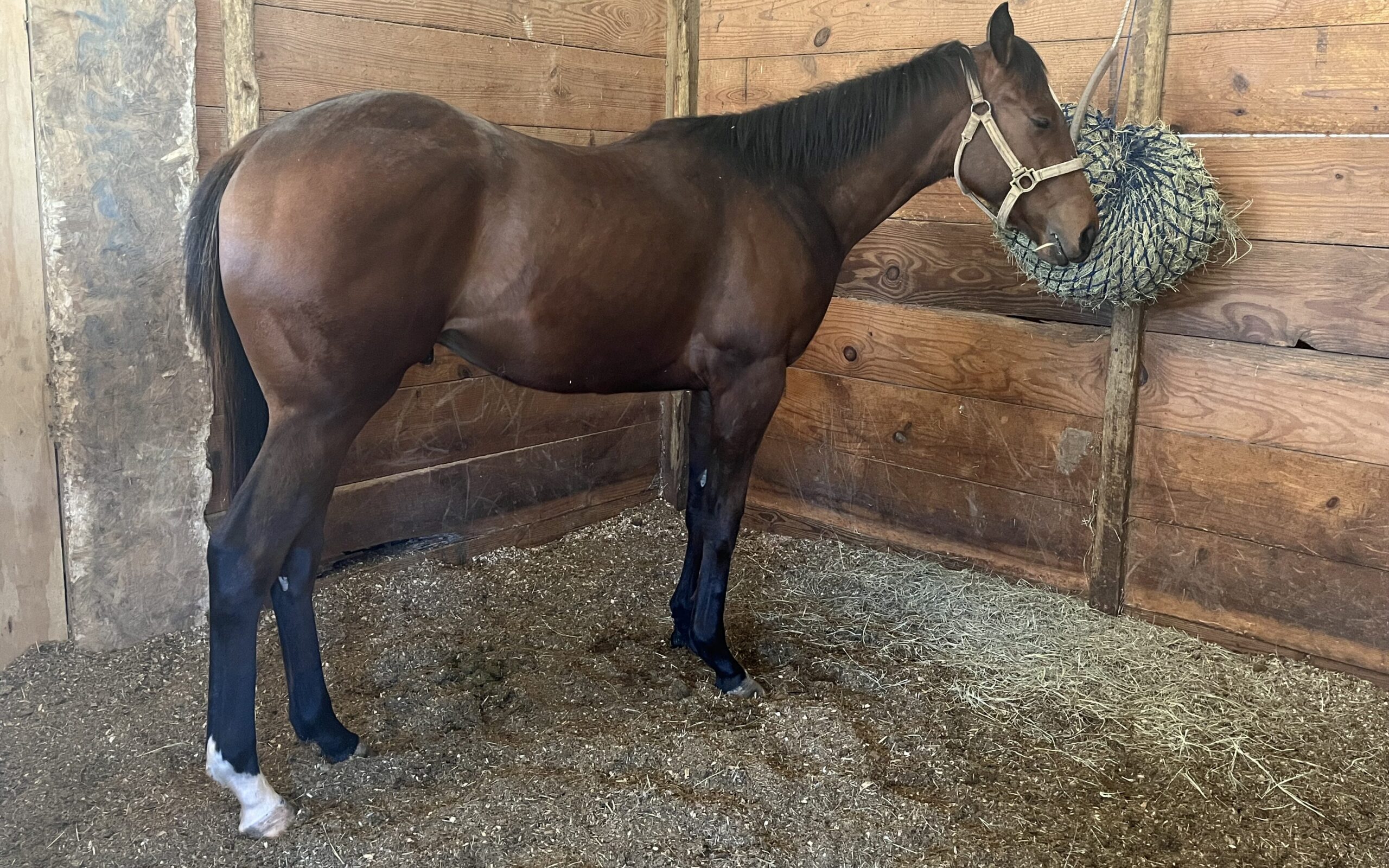
Optimally, a horse should be allowed to graze as much as possible over a pasture of healthy grass. The grass’s consistency is crucial since not every field supplies the sufficient minerals needed by a healthy horse.
Premium quality forage, grain, and nutrients should be provided to older horses as needed. The feed intake period is also essential. Aged horses must be fed every day, whenever practicable, around the same time. Regular feeding times help effectively protect their intestinal health in general.
Importance of regular exercise.
Horses are naturally active, and regular physical activity helps maintain a healthy weight, strong muscles, and good cardiovascular health. Whether it’s riding, lunging, or free roaming in a pasture, ensure your horse gets plenty of exercise.
Elderly horses seem to be more vulnerable to degenerative musculoskeletal diseases, including laminitis and arthritis. A few of the easiest ways to mitigate this is to ensure the horse keeps moving.
Routine veterinary care and vaccinations
Don’t overlook routine veterinary care and vaccinations. Regular check-ups allow for early detection and treatment of potential health issues. Vaccinations, deworming, and dental checks are all part of preventive healthcare that can prolong your horse’s life.
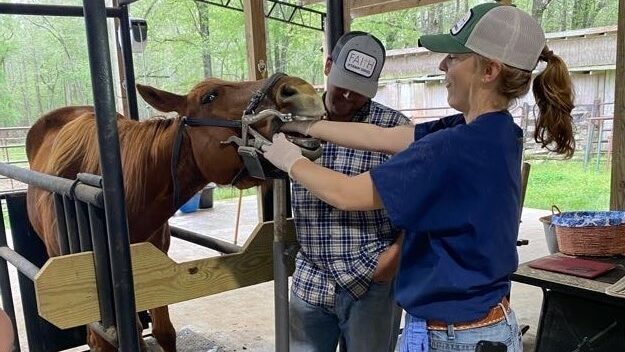
Mental health and companionship for horses
Let’s not forget about mental health and companionship. Horses are social animals and thrive in the company of others. Having at least one companion can help prevent loneliness and stress, promoting overall mental well-being.
Adequate Rest
It is crucial to allocate a portion of every horse’s day for relaxation. Undoubtedly, this varies on the role, maturity level, and health of the horse. Mental fatigue may result from an overstressed horse, and it typically causes accidents caused by discomfort, rigidity, and overuse.
For the long-term well-being of a horse, it’s critical to achieve the proper equilibrium between exercise and rest.
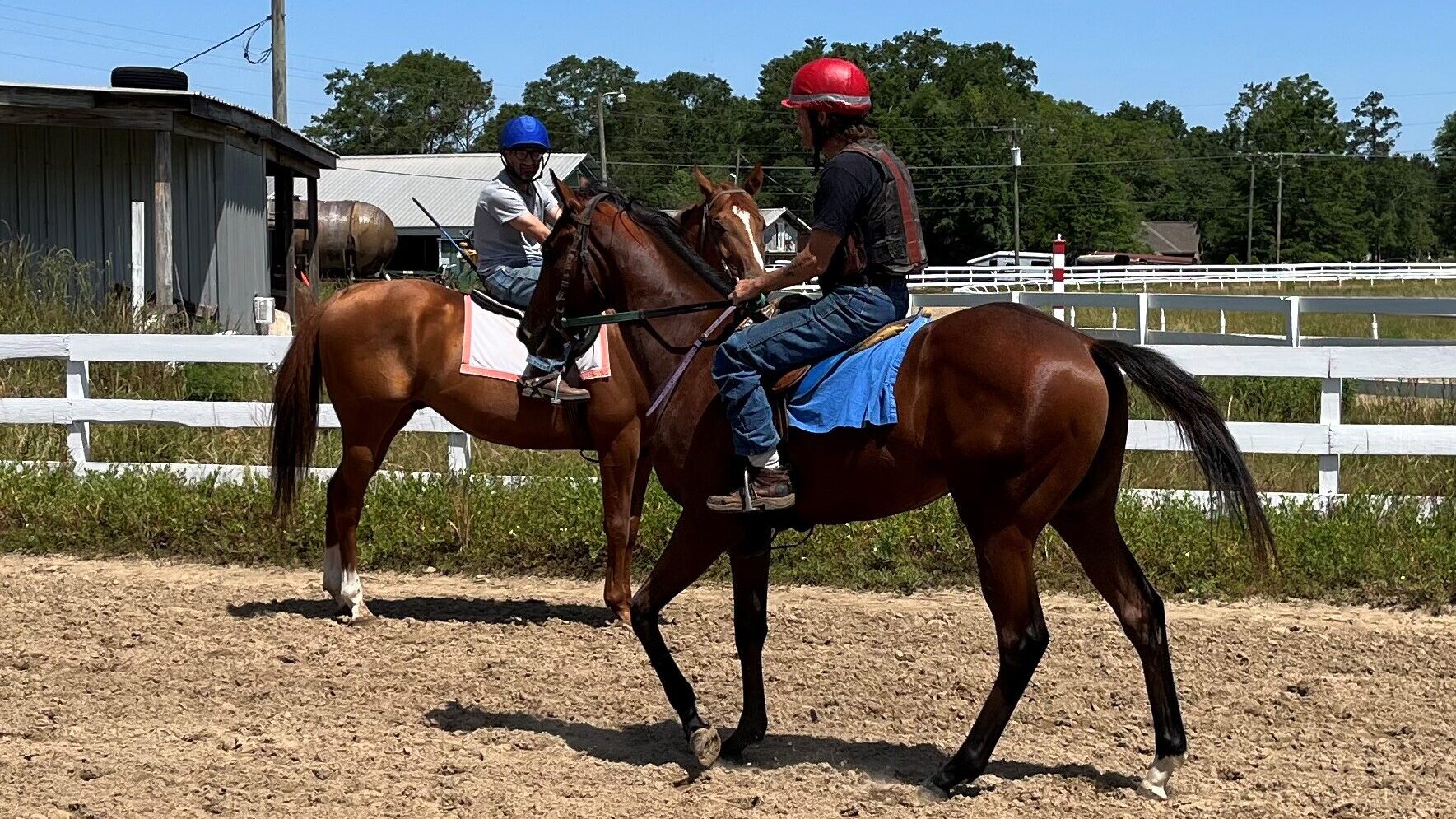
Signs of Aging in Horses
Just like humans, horses undergo a variety of changes as they age. Understanding these signs of aging can help ensure your horse continues to receive the care they need throughout their golden years.
First, let’s talk about physical changes. As horses age, their coat may start to lose its luster, becoming dull or patchy. Their teeth can also show signs of wear or disease, which can impact their ability to eat properly. Additionally, you may notice changes in their movement – older horses often move more slowly, may show stiffness, or have difficulty with tasks that were previously easy.
Secondly, behavioral changes are also common in older horses. They may become more irritable or less interested in activities they once enjoyed. Changes in appetite or drinking habits are also notable signs to watch out for. Remember, any significant behavioral change warrants a veterinary check-up to rule out underlying health problems.
Lastly, certain health problems become more prevalent as horses age. These can include arthritis, respiratory issues, and metabolic disorders like Cushing’s disease. Regular veterinary care is critical to managing these conditions and ensuring your horse maintains a good quality of life.
Understanding these signs of aging in horses can help you adapt their care routine accordingly, making sure they remain comfortable and healthy throughout their senior years. Remember, with age often comes wisdom – your older horse is a treasure trove of experiences and memories, deserving of the utmost care and respect.
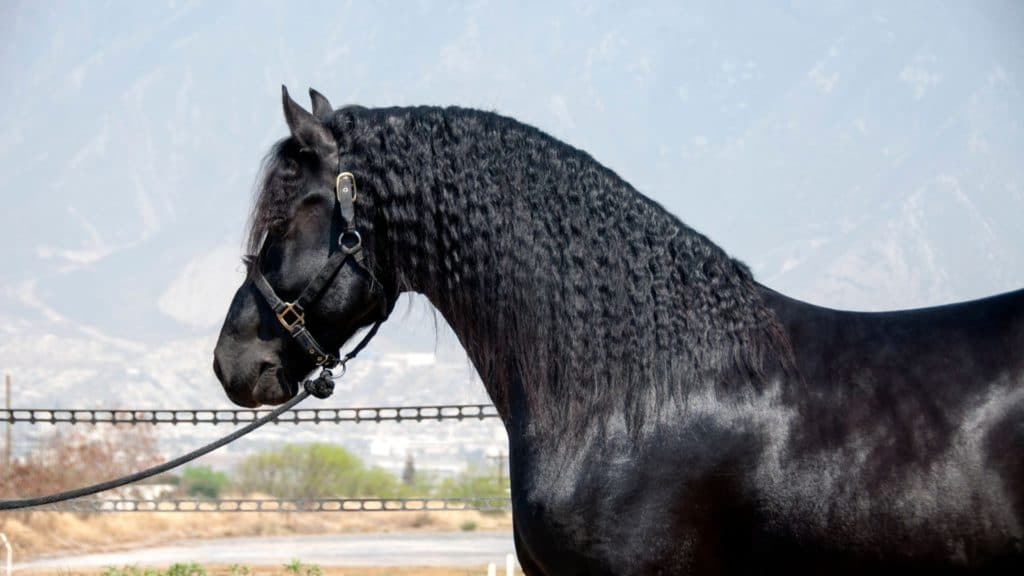
Average Lifespan by Type of Horse
| Cold Blood Horses (Draft Horses) | 28 years |
| Warm Blood Horses (Sport Horses) | 30 years |
| Hot Blood Horses (Light Horses) | 30 years |
Differences in Lifespan between Domesticated and Wild Horses
Wild horses have an average lifespan of around 15-20 years, which is shorter than that of domesticated horses. This is largely due to the harsher living conditions that wild horses face, including limited access to food and water, exposure to the elements, and the stress of living in a herd hierarchy.
In contrast, domesticated horses have access to regular veterinary care, a consistent supply of food and water, and protection from harsh environmental conditions, all of which contribute to a longer lifespan.
Below is a YouTube video that discusses how long horses live.
However, it’s worth noting that individual factors such as genetics, diet, and living conditions can also have a significant impact on the lifespan of both wild and domesticated horses.
Their cartilage and muscle fibers are more flexible and far more vulnerable to injury that eventually causes lameness. Through activity and effective horse handling, the risk of these problems is alleviated.
Rather than just extreme stall enclosure, pasture shelter is amongst the most noticeable means of defending against limited movement and associated disorders. If you do not ride, walk your horse, work it on a lunge line, or put them on a walker.
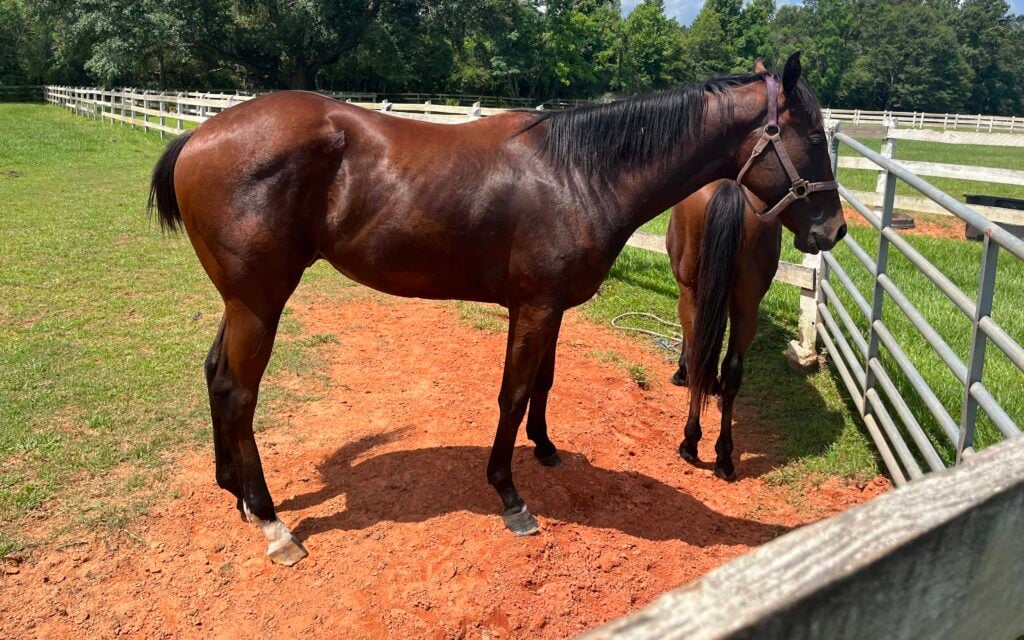
Debunking Myths About Horse Lifespan
When it comes to horse lifespans, there are plenty of myths and misconceptions out there. Let’s debunk some of the most common ones and emphasize the importance of relying on scientific facts for horse care.
One common myth is the idea that all horses live to be about the same age, typically around 20 to 25 years. In reality, as we’ve discussed earlier, the lifespan of horses can greatly vary, with some living well into their 30s or 40s or even longer.
Another widespread myth is the notion that horses, particularly working or racing ones, are “old” or “used up” by the time they reach their teens. This is simply not true. Many horses remain active and healthy well into their 20s or even 30s with the right care and management.
Lastly, there’s a misconception that there’s nothing one can do to influence a horse’s lifespan. This is far from the truth. Proper nutrition, regular exercise, preventative healthcare, and good living conditions can significantly enhance a horse’s quality of life and potentially extend their lifespan.
Understanding the science and facts about horse lifespan is crucial to debunking these myths. It enables us to make informed decisions about horse care and helps ensure our equine friends live long, healthy, and fulfilling lives. Just as with human health, equine health should be grounded in facts and not myths.
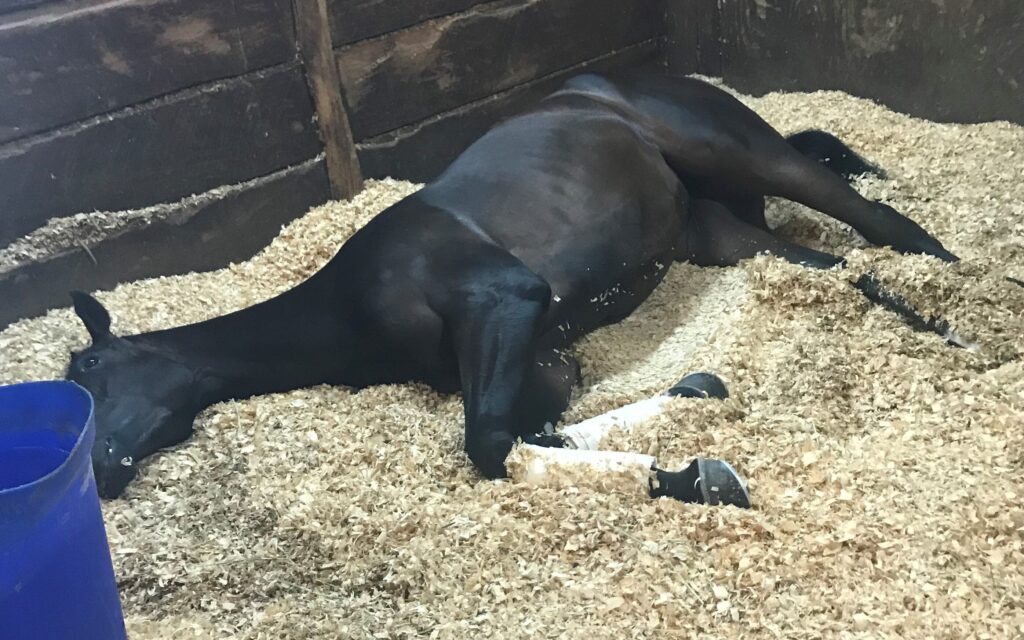
Conclusion
In conclusion, understanding the lifespan of a horse by breed is an important aspect of horse ownership. By knowing the typical lifespan of your horse, you can better prepare for their care and plan for their future.
Remember that a proper diet, regular exercise, and routine veterinary care can help ensure a long and healthy life for your equine companion. Whether you’re a first-time horse owner or a seasoned equestrian, taking the time to understand the lifespan of horses can help you make informed decisions and enjoy many years of companionship with your four-legged friend.
What is the average lifespan of a horse?
The average lifespan of a horse is between 25 and 30 years, though this can vary based on breed, care, and health conditions.
Do different breeds of horses have different lifespans?
Yes, some horse breeds tend to live longer than others. For instance, smaller breeds like ponies and miniatures often have longer lifespans than large horse breeds.
Do wild horses live as long as domesticated horses?
Typically, wild horses have a shorter lifespan compared to well-cared-for domesticated horses due to factors like predators, harsh environmental conditions, and lack of medical care.
How does the lifespan of a horse compare to other animals like dogs or cats?
Horses generally live longer than dogs but might have a similar or slightly shorter lifespan compared to some indoor cats. Of course, specific lifespans vary by breed and individual animal.

About the Author: Miles Henry
Lifelong Horseman | Racehorse Owner | Published Author
Miles Henry brings over 25 years of hands-on experience training and owning Thoroughbred racehorses. Raised with Quarter Horses and Appaloosas, he’s spent a lifetime learning from horses—on the track, in the barn, and in the field. Today, he runs a small but successful racing stable in Louisiana and shares real-world insights on HorseRacingSense.com, helping horse owners, fans, and bettors navigate the sport with confidence.
📚 Books: View Miles’s books on Amazon »
🎧 Podcast Guest: Animal Tales Ep. 32 |
YouTube Interview
📩 Newsletter: Sign up for racing tips and horse care advice »
🔗 Follow Miles:
Twitter |
Facebook |
YouTube


